The first thought you might be wondering is there are now pocket-sized portable EV battery chargers that you can keep in the boot of your new EV. This isn't quite the case. At least, not yet. The EV charger scene is still developing with EU mandates looming, and firms all over the automotive landscape are battling to meet demands. This means a load of new public chargers have been set up, but not quite everywhere yet.
According to Zap-Map, there are over 73,000 public charging points throughout the UK (as of December 2024), which is a 37% increase since December 2023. So, it's fair to say that the technology and infrastructure is growing, yet still isn't suitable for every motorist. If you've made the switch to an EV, then having places to charge is a needs-must.
Of course, there are areas where there are higher concentrations of EV chargers, such as London, but the principle stands because EV charger hotspots align with population density. However, there are certain scenarios where a portable charger comes in handy, such as if you find yourself parked up on holiday without a wall box. Portable EV chargers can allow for slower, but more manageable charging where the infrastructure hasn't yet been reached.
The best portable EV chargers 2025 at a glance
It will still be some time before technology can shrink the size of a portable EV charger to something that can be carried in the boot of your car, never mind the glove box. There are such units popping up, but they can be enormous and horrendously expensive. So, for now, we have to be content with portable charging cables. We've compiled a list of some of our favourites.
The best portable EV chargers 2025
The best portable EV charger
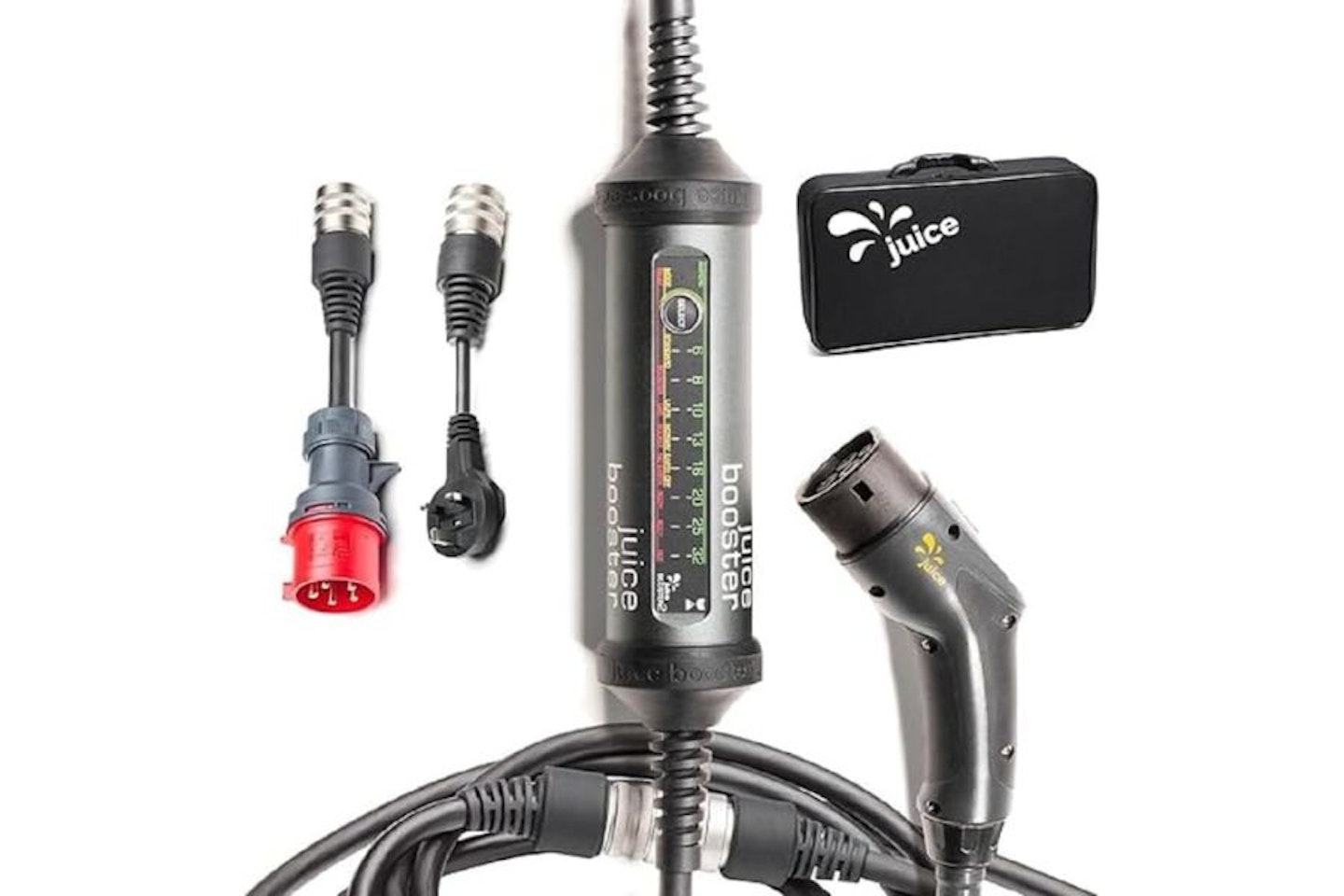 Via Juice Booster
Via Juice BoosterBoasting a range from 11-22kW of charging, this setup has the potential to fully charge up a vehicle within 3-4 hours. The item is IP67 waterproof, so it can survive much more than heavy rainfall, should you get caught up in some.
It's also suitable for use in temperatures ranging from -25 to 45 degrees, so rest assured if you're embarking on a long road trip in your EV in places of varying climates. From the Alps to St Tropez for example. What's more, it even has a three-pin socket at the end, so the requirement for a wall box unit isn't needed.
Pros
- Can charge an EV in 3-4 hours in the right conditions
- IP67 waterproof rating means it can take big splashes
- Two mains plug options included
Cons
- Doesn't represent as good value as the others
Editor's pick
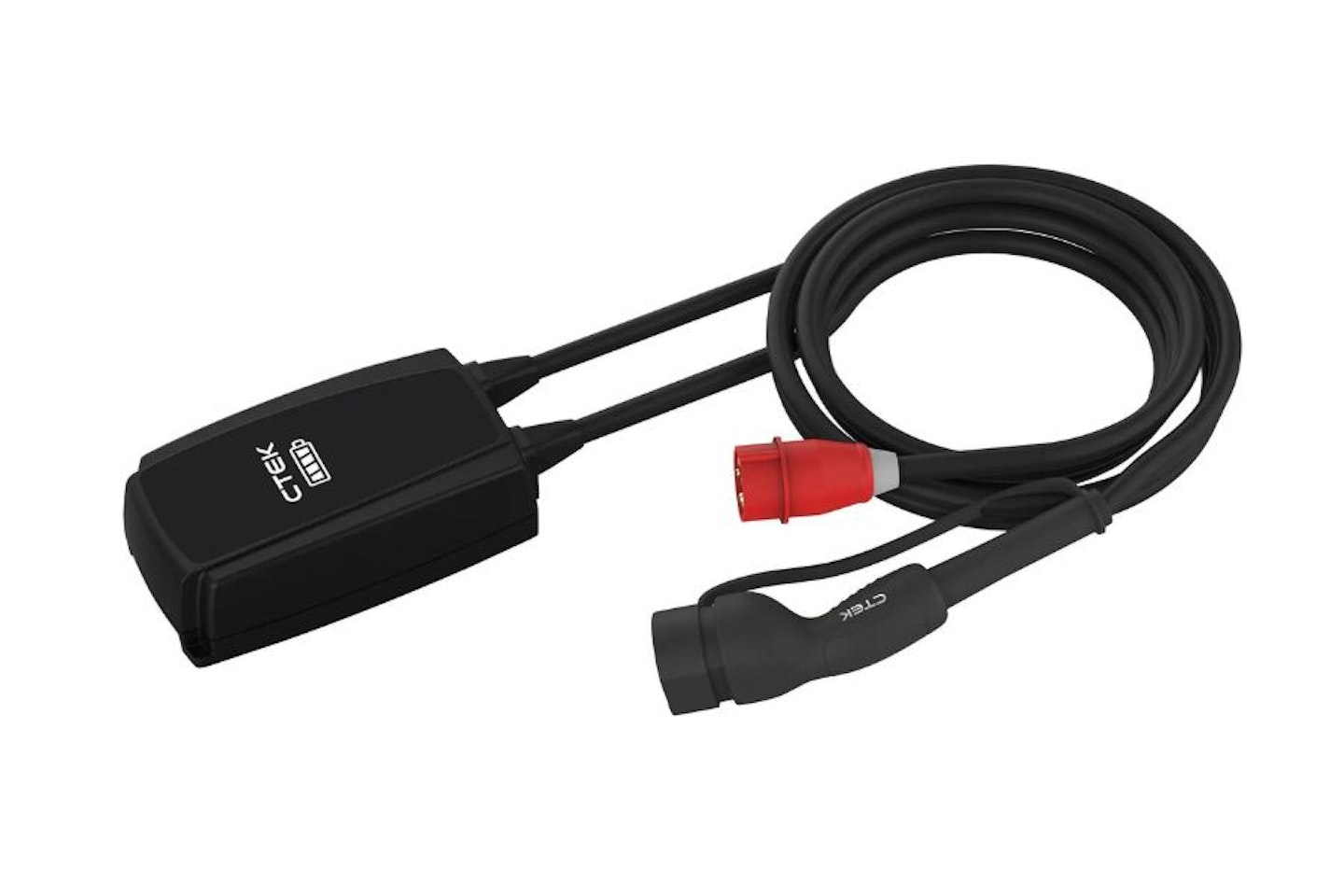 Via CTEK
Via CTEK On the much pricier end of the spectrum, CTEK offers a fully comprehensive mini power station for you to charge your electric vehicle on the go. It has a charging capacity of 11kW and is fed by a Type 2 connector.
With WiFi and Bluetooth connection, you can control the charger from your phone, which includes charging scheduling, controlling the charge power as well as an interface displaying all the information. You can even pause your charging if you really wanted to.
Pros
- Incredibly useful and comprehensive piece of kit
- Completely wireless and doesn't have to be plugged into the mains
- Great quality and can be used in all weather
Cons
- Charging speed obviously isn't rapid
Best for protection
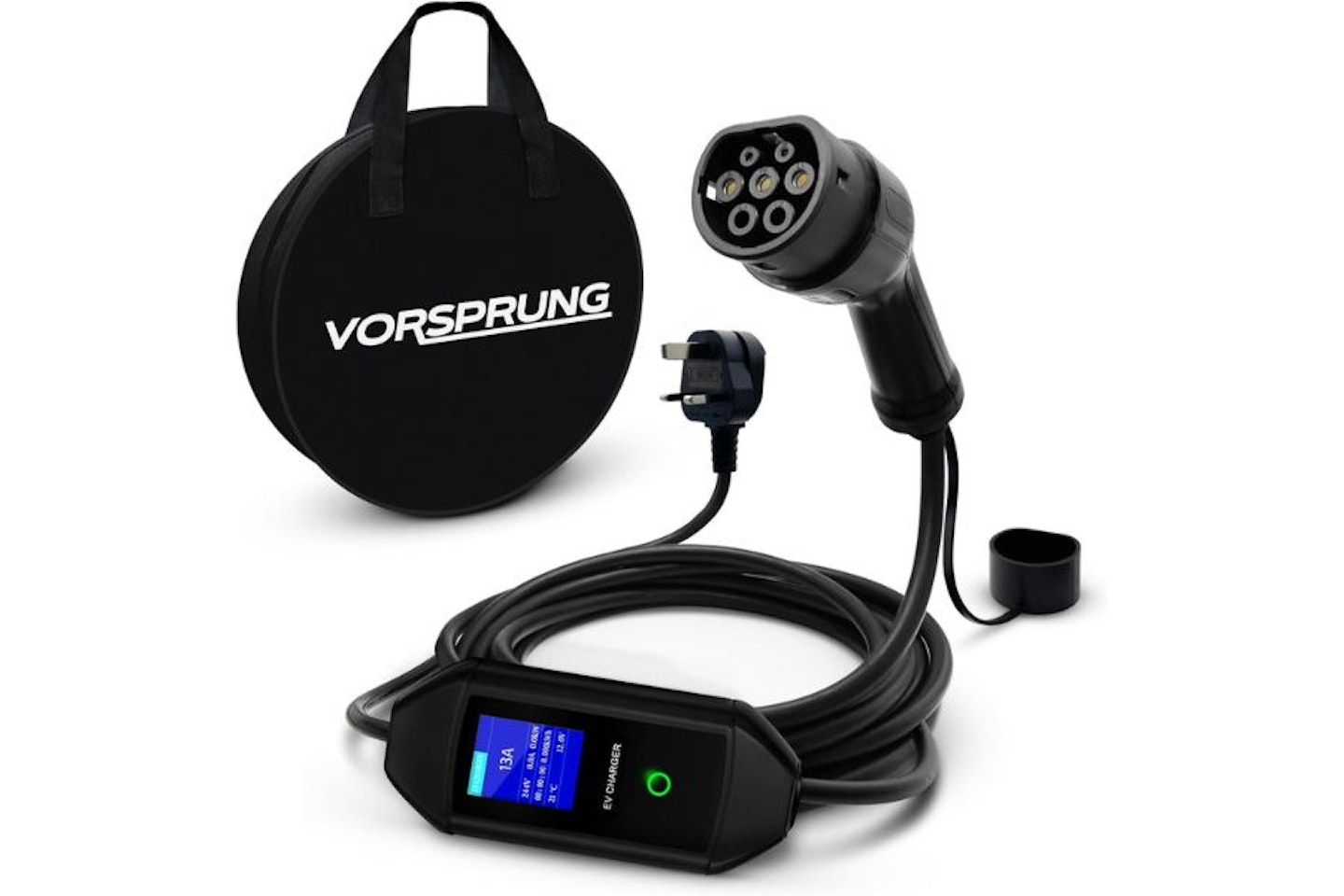 Via Vorsprung
Via VorsprungThe Vorsprung Portable EV Charger Type 2 comes with a generous 8-Metre cable allowing greater flexibility. Charging power is adjustable from 6 to 13 amps, depending on your requirements and can deliver up to 3.3kW allowing faster charging. The charger is built from high-strength, waterproof ABS material for longevity and safety. It comes with overcurrent, over-voltage, under-voltage, leakage, and overheat protection.
Pros
- Longer cable than others at eight-metres
- Waterproof protection
- Good value for money compared to some others
Cons
- Heavy at nearly 3kg
Best EV charger for robustness
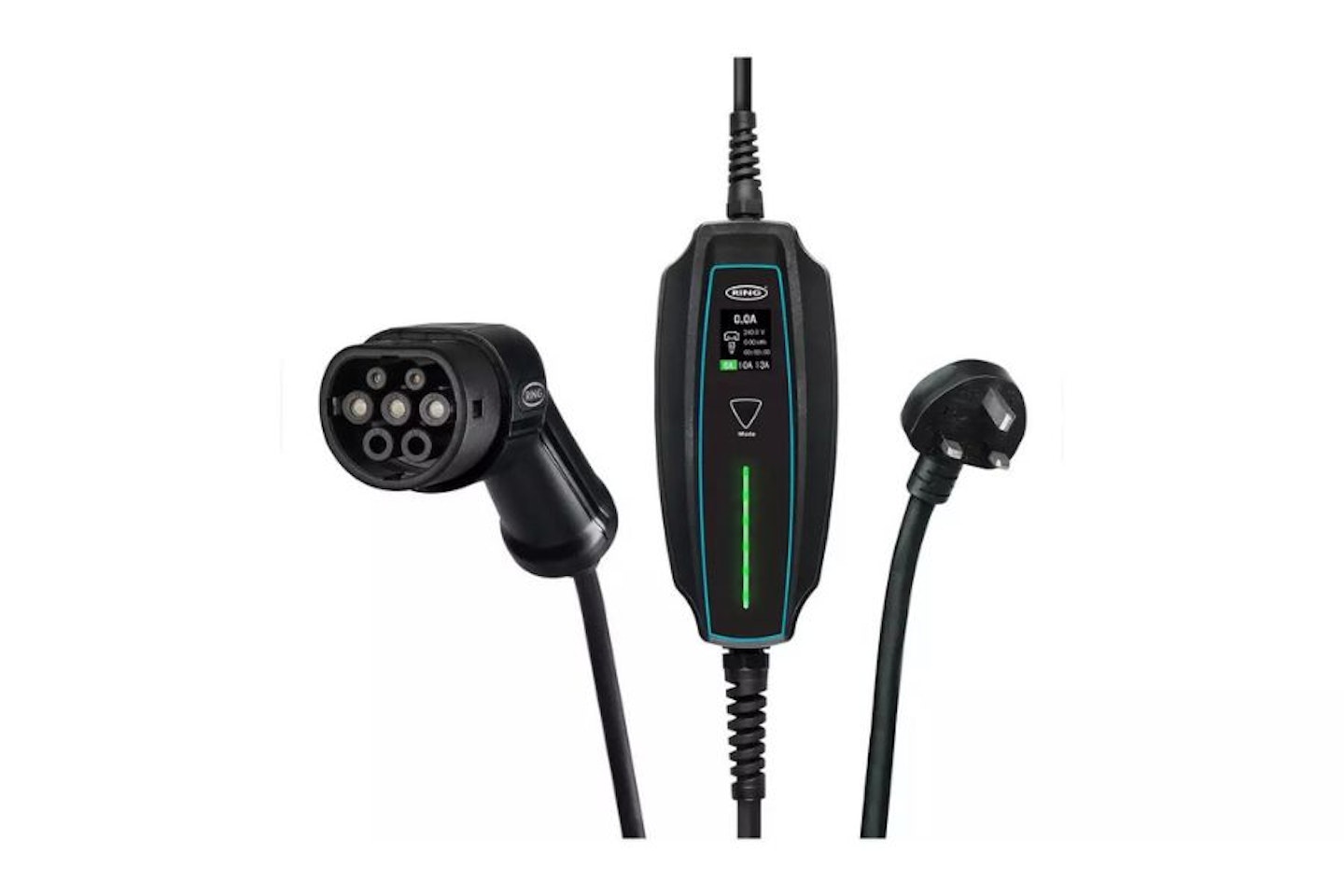 Via Ring Automotive
Via Ring AutomotiveThis type 2 EV charger from Ring is ideal for topping up while you are parked up at home or when you have access to a domestic 3-pin plug. The high-visibility LCD screen allows you to see the amount of time your vehicle has been charging as well as the power consumed. It should fully charge a 10kWh battery in around 10 hours.
Pros
- Waterproof (IP65) and can withstand being run over (IK10)
- 10kW charging is more impressive than some others
- Choose between 6, 10, and 13 Amps
Cons
- Only a five-metre cable, which falls short of others
The most versatile EV charger
 Via Vorsprung
Via VorsprungThis set from Third Rock Energy allows you to charge your electric vehicle using any UK 3-pin domestic plug socket. It has adjustable settings from 6 amps to 13 amps, meaning you can alter the charge speed depending on where you are, and the cable carry bag ensures easy storage and transportation. The car connector is made from hardwearing thermoplastic tested to withstand 10,000 mating cycles.
Pros
- Long 10-metre cable as well as two shorter options
- Waterproof with an IP67 rating
- Has a selection of four charging speeds from 6-13A
Cons
- Operating instructions could be better
The best budget EV charger
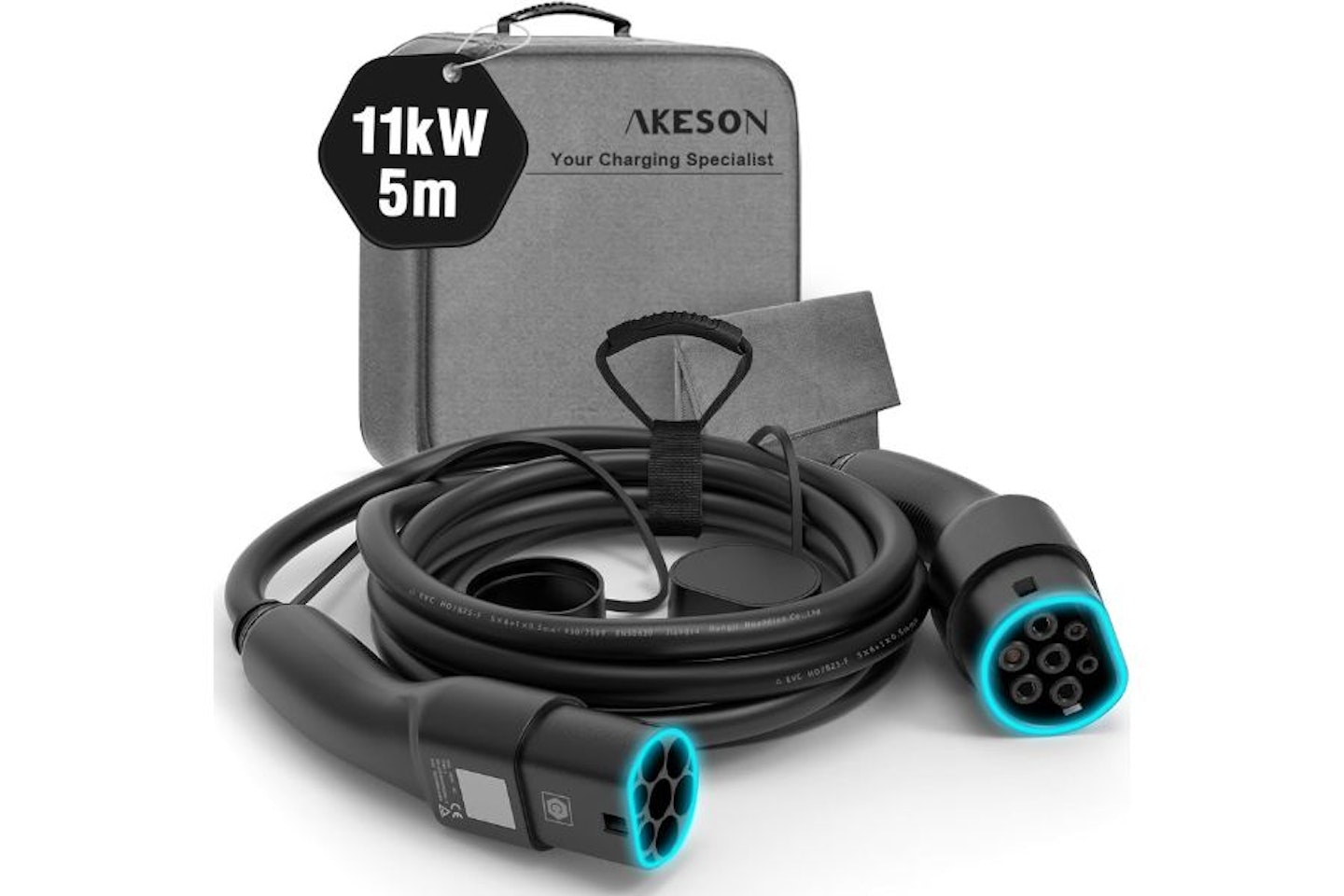 Via Akeson
Via AkesonThe AKESON Type 2 Charging Cable is for use with an EV charger rather than a domestic socket and is compatible with virtually all charging stations in Europe; the Type 2 plug complies with the EU standard and can be easily taken on the road as it comes with its own smart carrying bag.
Although this version only has a 5m cable, there are longer cable lengths available, up to 10m, if access to a power socket is more difficult. The kit comes with a carry strap and a high-quality cloth for cleaning after use.
Pros
- Euro-compatible and can be used with most charging stations
- Different cable lengths are available from three-metres to ten-metres
- Great value for money at just under £100
Cons
- IP55 waterproof rating doesn't make it as protected as competitors with IP65 and above
The best mid-range portable EV charger
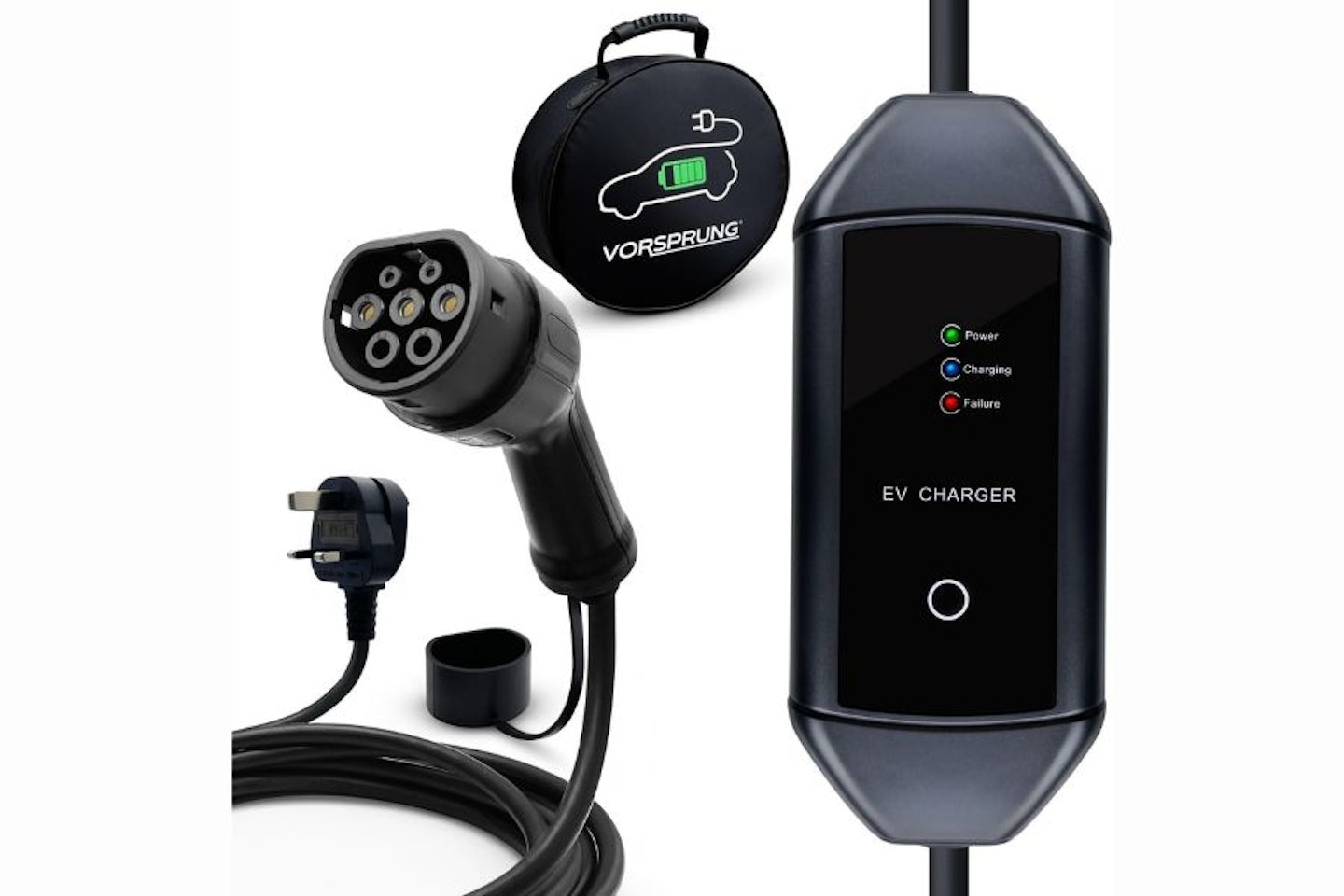 Via Vorsprung
Via VorsprungThis charging cable by Vorsprung is available in three different lengths: five-metres, eight-metres, or ten-metres. They differ by around £10 in price respectively, and are capable of charging up to 3.3kW through either type 2 or type 3 connectors.
The charging unit is also designed to withstand temperatures between -25 to 55 degrees and boasts an IP65 waterproof rating, which while that isn't as waterproof as chargers with an IP66 or 67 rating, it will still be well-protected in wet and rainy conditions.
Pros
- Available in three different lengths ranging from 5-10 metres
- IP65 waterproof rating labels durability in wet conditions
- Perfect for an overnight charge
Cons
- Slower charging rate than some others
FAQs and things to consider when buying an EV charging cable:
What is the difference between aftermarket EV chargers and manufacturer ones?
It's a valid question as when you buy an EV, a charging cable will be supplied with it. However, a lot of them won't include a three-pin socket and are only compatible with wall box or public chargers.
Most aftermarket EV charging cables connect to a 3-pin home plug, which increases the amount of places where you can charge an EV, should you be staying somewhere without a wall box. They have a fairly low current and therefore don’t charge as fast as public points.
Where can you use a portable EV charger?
If it's going to be used in a domestic setting with no charging port, you'll need one with a domestic UK three-pin plug. Bear in mind that the current available from the domestic supply is quite low, so charging will take longer than at a public charging station.
If you plan on using charging stations or your own home charging point, you'll need a cable with a male connector at one end and a female at the other. Many public charging stations in the UK use Type 2 connectors, but there are rapid chargers with CCS connectors for faster charging.
What size cable is good for an EV charger?
If you are able to park close to a charging point or a mains outlet, a shorter 3 or 5m cable might be suitable. But if you are using different locations, it might be better to err on the side of caution and go for a longer 7 or 10m cable.
What features come with portable EV chargers?
Some chargers come with smart features like remote monitoring, scheduling, and smartphone apps that allow you to control and monitor charging sessions. These features can be beneficial for optimizing charging costs and efficiency.
EV charging explained
In a nutshell, EV charging works like this: Power = Current (amps) x Voltage. For example, a charger cable with a 13A current connected to a standard 230-volt 3-pin home plug will produce a power output of about 3.0 kilowatts (kW). Therefore, if you have a Nissan Leaf with a 40kWh battery, it will take the 13A charger just over 13 hours to charge the battery fully from flat (40 divided by 3). These slower charging cables are ideally suited as helpful overnight top-ups.
For a full rundown on how EV charging works, head to our guide to EV home chargers here.
Aaron Hussain is a commercial content writer at Bauer Media writing for Parkers and CAR. He is obsessed with classic cars and anything with a fascinating story to tell.
